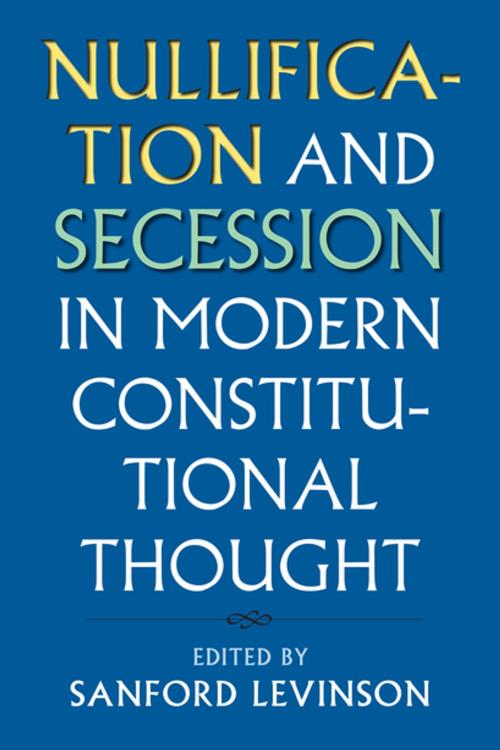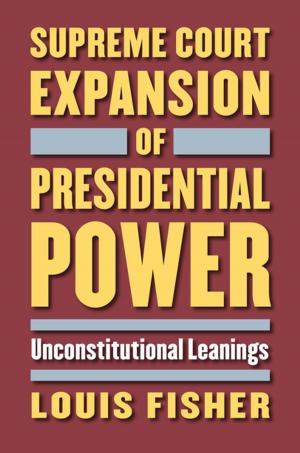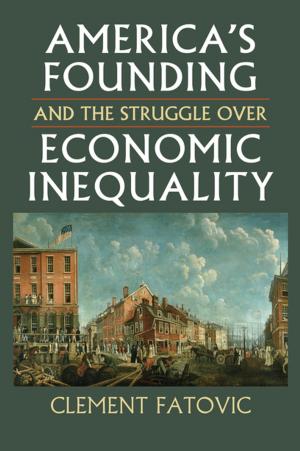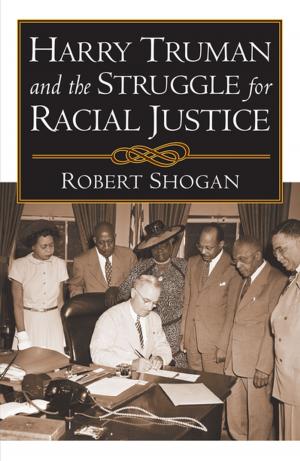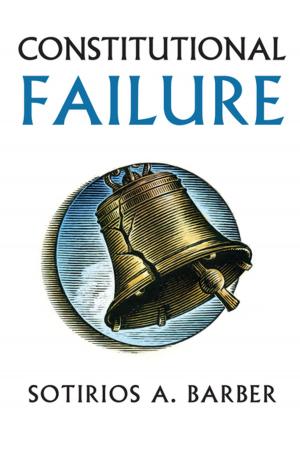Nullification and Secession in Modern Constitutional Thought
Nonfiction, Social & Cultural Studies, Current Events, Political Science, Government, Local Government| Author: | ISBN: | 9780700622986 | |
| Publisher: | University Press of Kansas | Publication: | September 9, 2016 |
| Imprint: | University Press of Kansas | Language: | English |
| Author: | |
| ISBN: | 9780700622986 |
| Publisher: | University Press of Kansas |
| Publication: | September 9, 2016 |
| Imprint: | University Press of Kansas |
| Language: | English |
The Missouri legislature passes a bill to flout federal gun-control laws it deems unconstitutional. Texas refuses to recognize same-sex marriages, citing the state's sovereignty. The Tenth Amendment Center promotes the “Federal Health Care Nullification Act.” In these and many other similar instances, the spirit of nullification is seeing a resurgence in an ever-more politically fragmented and decentralized America. What this means—in legal, cultural, and historical terms—is the question explored in Nullification and Secession in Modern Constitutional Thought. Bringing together a number of distinguished scholars, the book offers a variety of informed perspectives on what editor Sanford Levinson terms “neo-nullification,” a category that extends from formal declarations on the invalidity of federal law to what might be called “uncooperative federalism.”
Mark Tushnet, Mark Graber, James Read, Jared Goldstein, Vicki Jackson, and Alison La Croix are among the contributors who consider a strain of federalism stretching from the framing of the Constitution to the state of Texas’'s most recent threat to secede from the United States. The authors look at the theory and practice of nullification and secession here and abroad, discussing how contemporary advocates use the text and history of the Constitution to make their cases, and how very different texts and histories influence such movements outside of the United States—in Scotland, for instance, or Catalonia, or Quebec, or even England vis-à-vis the European Union. Together these essays provide a nuanced account of the practical and philosophical implications of a concept that has marked America's troubled times, from the build-up to the Civil War to the struggle over civil rights to battles over the Second Amendment and Obamacare.
The Missouri legislature passes a bill to flout federal gun-control laws it deems unconstitutional. Texas refuses to recognize same-sex marriages, citing the state's sovereignty. The Tenth Amendment Center promotes the “Federal Health Care Nullification Act.” In these and many other similar instances, the spirit of nullification is seeing a resurgence in an ever-more politically fragmented and decentralized America. What this means—in legal, cultural, and historical terms—is the question explored in Nullification and Secession in Modern Constitutional Thought. Bringing together a number of distinguished scholars, the book offers a variety of informed perspectives on what editor Sanford Levinson terms “neo-nullification,” a category that extends from formal declarations on the invalidity of federal law to what might be called “uncooperative federalism.”
Mark Tushnet, Mark Graber, James Read, Jared Goldstein, Vicki Jackson, and Alison La Croix are among the contributors who consider a strain of federalism stretching from the framing of the Constitution to the state of Texas’'s most recent threat to secede from the United States. The authors look at the theory and practice of nullification and secession here and abroad, discussing how contemporary advocates use the text and history of the Constitution to make their cases, and how very different texts and histories influence such movements outside of the United States—in Scotland, for instance, or Catalonia, or Quebec, or even England vis-à-vis the European Union. Together these essays provide a nuanced account of the practical and philosophical implications of a concept that has marked America's troubled times, from the build-up to the Civil War to the struggle over civil rights to battles over the Second Amendment and Obamacare.
